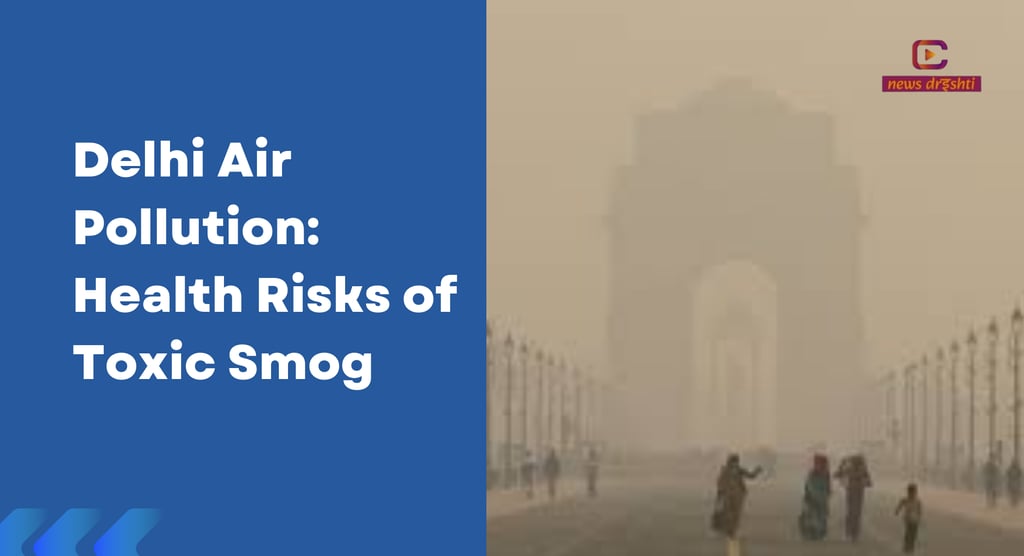Delhi Air Pollution: Health Risks of Toxic Smog
As Delhi faces hazardous air pollution levels, medical experts highlight the severe health effects of toxic smog. With the air quality index surpassing 450, even short exposure can lead to serious respiratory issues. Learn more about the dangers of PM2.5 and PM10 pollutants.
NATIONAL


New Delhi, November 19, 2024 – As Delhi continues to grapple with hazardous levels of air pollution, medical experts warn that even brief exposure to the toxic smog enveloping the city can have immediate and severe health repercussions. With the Air Quality Index (AQI) persistently crossing the 450 mark in many areas, the situation has reached critical proportions.
Particulate pollutants such as PM2.5 and PM10, notorious for their ability to penetrate deep into the respiratory system, are key contributors to the health crisis. According to Dr. G.C. Khilnani, Chairman of Pulmonary Medicine at PSRI Hospital, "The current air quality is causing widespread respiratory issues, even among individuals with no prior health conditions." In his recent consultations, five patients exhibited acute symptoms like chest tightness, breathlessness, and a persistent cough, all aggravated by the polluted air.
Vulnerable Groups Face Heightened Risks
Those with pre-existing conditions such as asthma and chronic obstructive pulmonary disease (COPD) are particularly vulnerable. Short-term exposure can exacerbate these ailments, necessitating immediate medical attention. Additionally, children, the elderly, and pregnant women are more likely to experience complications. Pediatric cases of asthma, pneumonia, and persistent cough have seen a marked rise, while adults report symptoms of cardiovascular strain, including elevated heart rates and hypertension.
Dr. Arvind Kumar of Medanta Hospital highlighted the far-reaching effects of air pollution, stating, "Particulate matter doesn't just harm the lungs. It travels through the bloodstream, impacting organs from the brain to the kidneys." Neurological symptoms such as increased hyperactivity in children and higher risks of strokes and dementia in adults are also being observed.
Carcinogenic Risks from Prolonged Exposure
Long-term exposure to high levels of pollutants increases the risk of severe illnesses, including lung cancer. Studies by the International Agency for Research on Cancer (IARC) confirm that outdoor air pollution is a Group 1 carcinogen. The fine particles in the air, laden with heavy metals and polycyclic aromatic hydrocarbons, are known to induce cellular damage, progressively increasing cancer risks.
Preventive Measures and Public Health Advisory
To combat the immediate effects of the smog, experts recommend minimizing outdoor activities, using air purifiers indoors, and wearing N95 masks when stepping outside. Healthcare facilities have witnessed a surge in patients reporting respiratory and cardiac issues, underscoring the need for urgent medical interventions.
As Delhiites endure this public health emergency, calls for stricter emissions regulations and sustainable urban planning are gaining momentum. Until then, minimizing exposure remains the most effective defense against the hazardous air.
